After almost a decade since the last new entry, we can return to the universe of Dead Space. Developer Motive Studios and publisher Electronic Arts have completely rebuilt the original game and the results are stellar. Walking down the empty hallways, listening for any sign of movement in the walls, checking to make sure the Plasma Cutter is reloaded, it all feels familiar and great at the same time.
If you’ve played through Dead Space before, the general story is the same here, though it’s been expanded a fair bit. Players step into the armored shoes of engineer Isaac Clarke, who is part of a small team sent to do repairs on the USG Ishimura, a massive ship that’s designed to break apart planets and process vast amounts of resources.
When Isaac and his companions Hammond and Kendra Daniels get on board, they find a horrifying situation unfolding, as the ship has been overrun by creatures called Necromorphs, which are growing out of the corpses of the slaughtered crew. With the ship falling apart and monsters everywhere, Isaac has to use his engineering skills to try and stay alive while finding his girlfriend Nicole, who is lost somewhere onboard the Ishimura.
This remake faithfully takes Visceral Games’ 2008 science-fiction horror tale and rebuilds it for a modern generation of hardware. Improvements are made to the gameplay, story, and presentation where necessary, all while preserving the spirit and atmosphere that made the original experience so compelling.
Disclaimer: This review was made possible by a review code provided by Electronic Arts. The company did not see the contents of this review before publishing.
Dead Space remake: Story and characters
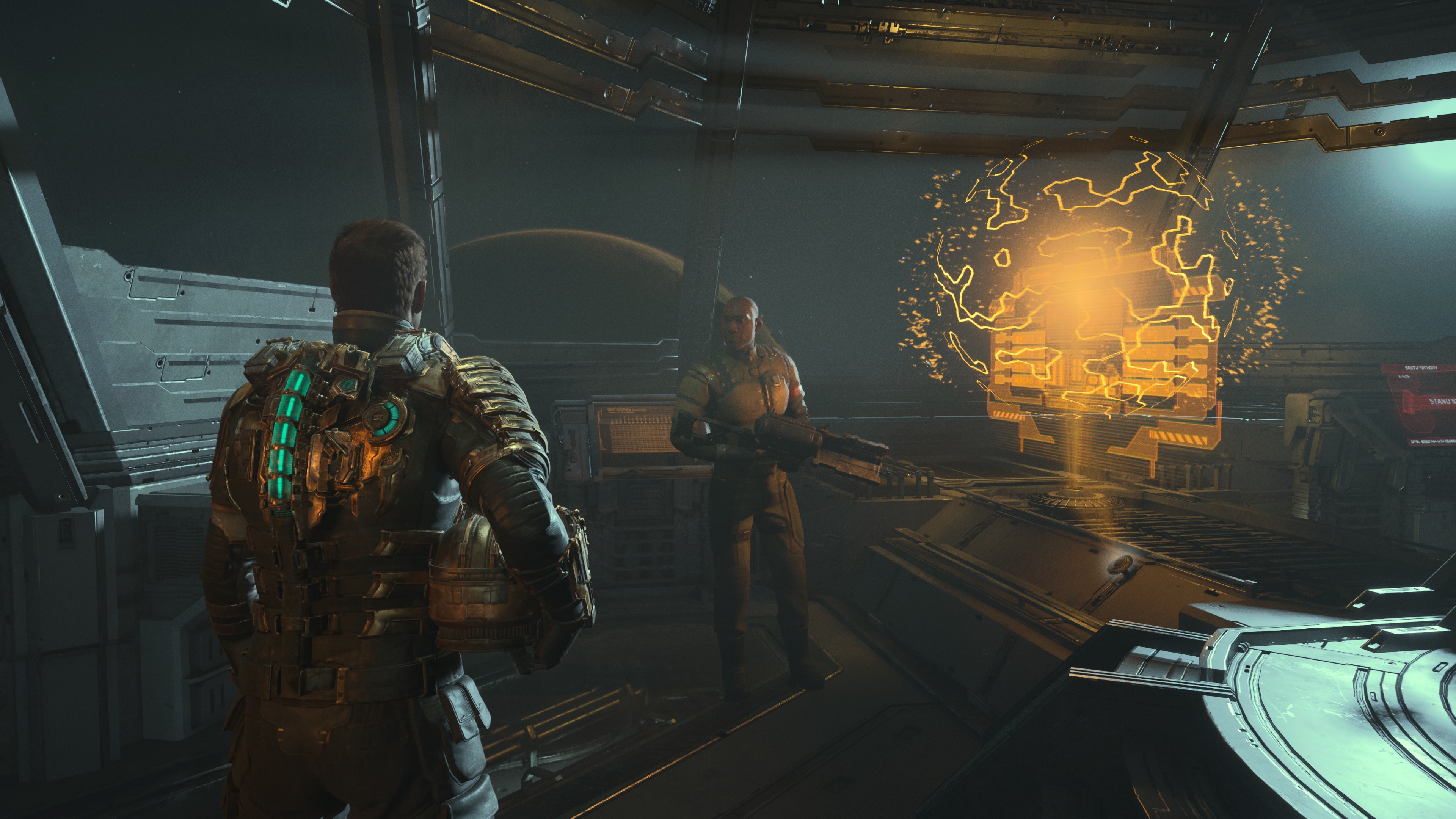
The main plot unfolds extremely similarly to how it did back in 2008, though there are a handful of changes or alterations to exactly how events play out, enough to keep players invested even if they’re extremely familiar with what’s about to happen next.
By far the biggest change is to the main character, who is now voiced by Gunner Wright, who was also the performance actor for Isaac in Dead Space 2 and Dead Space 3. Instead of constantly being talked at and told what to do, Isaac now comments on different situations and problems, and it makes the story feel so much more engrossing.
| Developer | Motive Studios |
| Publisher | Electronic Arts |
| Genre | Survival-horror |
| Install size | 39.9GB |
| Playtime | 10-12 hours |
| Players | Single-player |
| Release date | Jan. 27, 2023 |
| Platforms | Xbox Series X|S, PC, PS5 |
| Xbox/PC Game Pass | No |
| Price | $70 |
| Reviewed on | Xbox Series X |
There are even a few new conversations that take advantage of Isaac having a voice now, further fleshing characters like Hammond, Kendra, and others, with some characters having a much more important role than they did in the original game.
Side quests (more on that below) go even further here, allowing Isaac — as well as first-time players — to learn more about exactly how things went wrong on the ship, and how many on board tried their hardest to keep things from spiraling out of control.
It’s a win-win structure for this remake to use, as there’s more detail here for anyone new, while any returning players will appreciate the differences. I won’t spoil any of the changes, but I can’t point to a change I didn’t like. Most of the characters here feel more fleshed-out and real, no matter if their intentions were for malice or benevolence.
Dead Space remake: Gameplay and customization
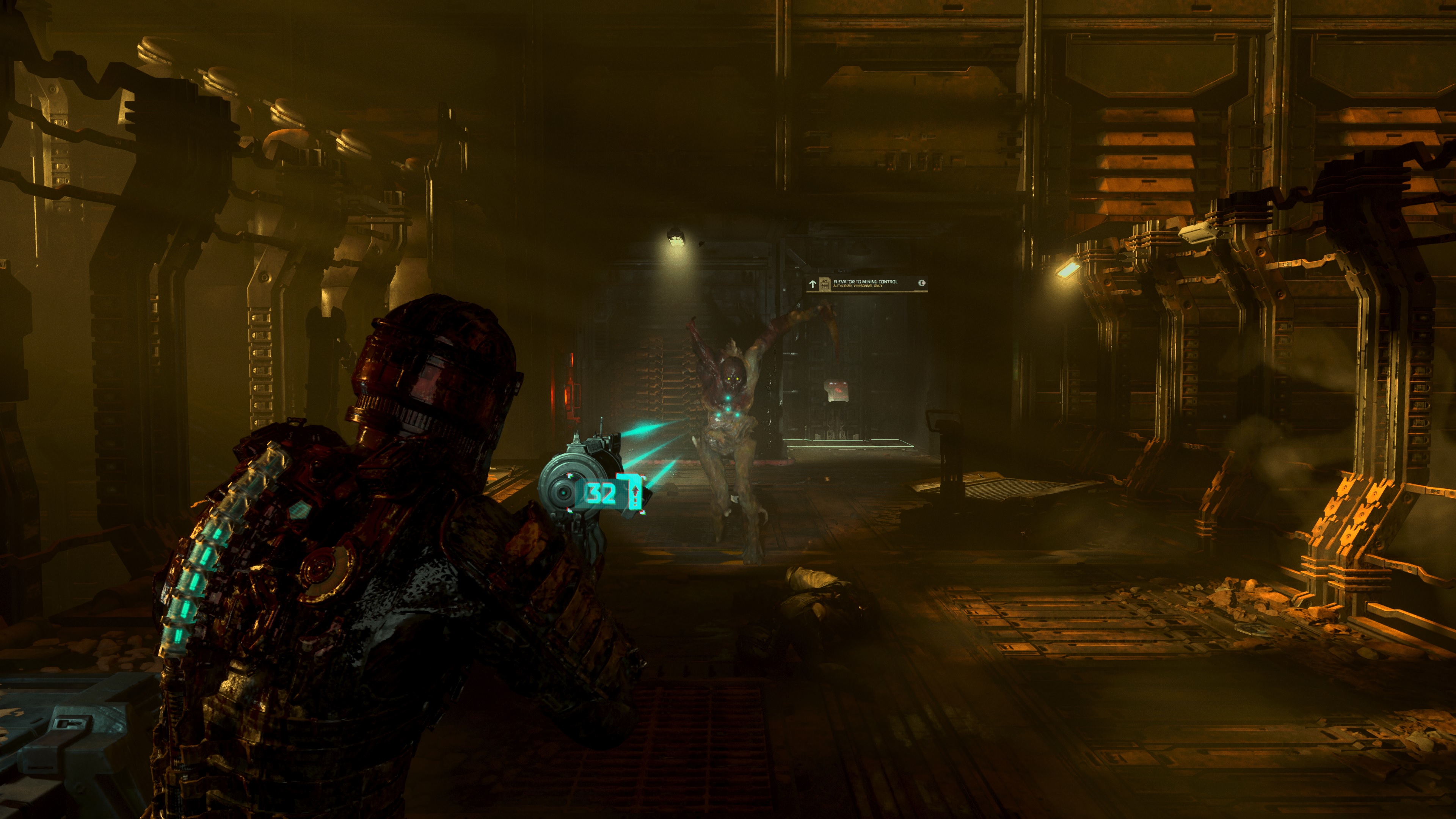
The original Dead Space is a third-person shooter, and that hasn’t changed here. The core gameplay loop is the same, as Isaac uses a variety of OSHA-flaunting mining equipment (and one true gun) to brutally dismember Necromorphs. As more dangerous and evolved threats appear, you’ll have to upgrade your equipment using scavenged Power Nodes, while carefully spending any credits collected on upgraded suits, weapon parts, health packs, and more.
There’s been a few tweaks and reworks here, with the Pulse Rifle’s frankly bizarre 360-degree attack replaced with a proximity grenade, while the Plasma Cutter can get the damage-over-time buff that was introduced in Dead Space 2. Bladed Necromorph limbs and metal spikes can also be used to directly impale enemies into the wall, another feature borrowed from Dead Space 2.
Bigger changes come in the structure of the USG Ishimura itself and how players navigate. With this remake developed exclusively for high-end PCs, Xbox Series X, Xbox Series S, and PS5, load times have been eliminated. Instead of boarding a tram at the end of every single chapter, you’ll often make your way between sections of the ship in other ways, since the entire spacecraft is physically interconnected. The tram is still present but is now used as a way of quickly going anywhere you’ve already unlocked, allowing you to go from one side of the ship to the other in seconds.
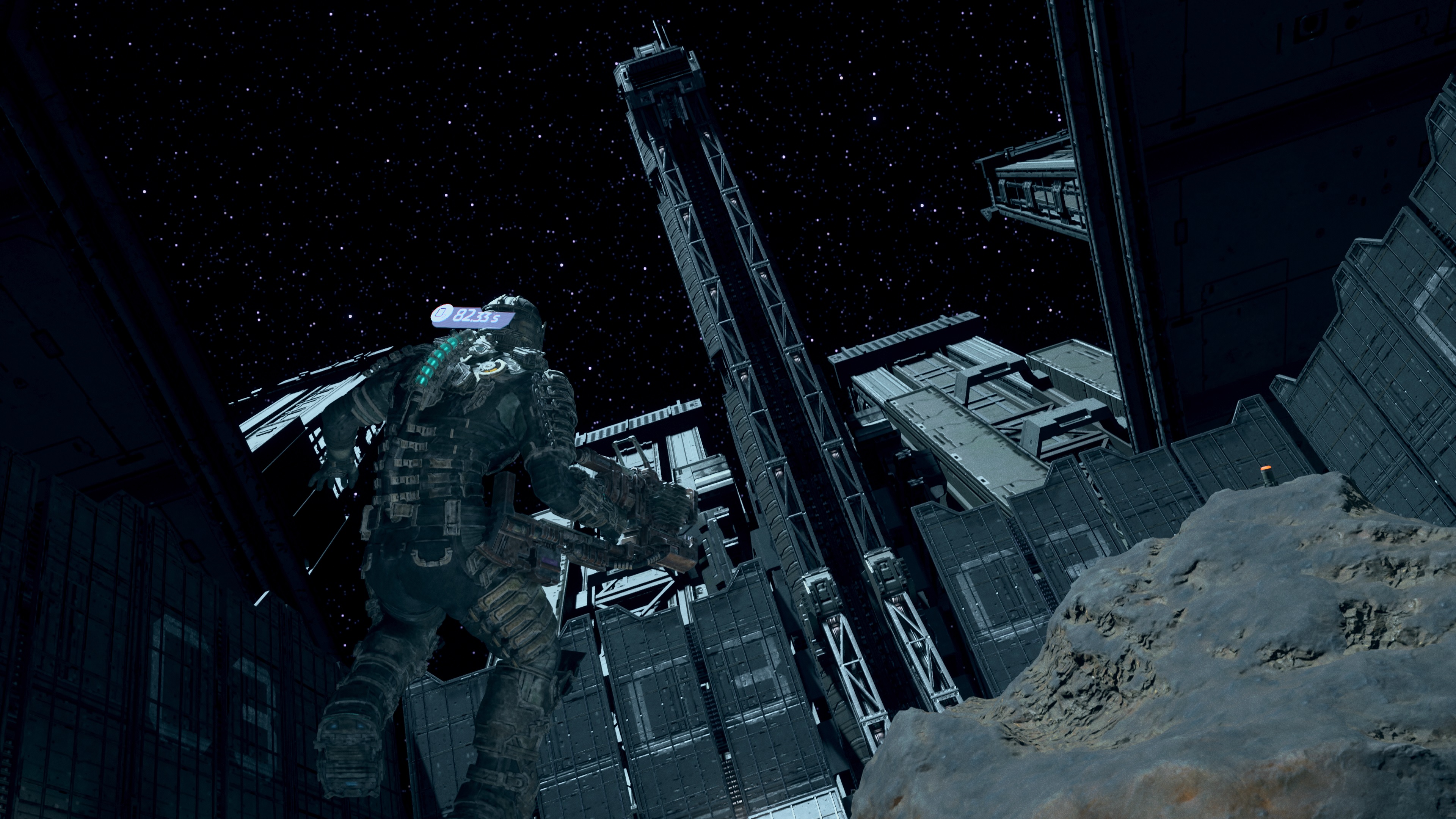
The effect this change has on the flow of the game really can’t be overstated. While Dead Space is still divided into Chapters, they aren’t levels segmented off from one another but instead just a marker of progress. The USG Ishimura always felt lived-in but exploring it is now akin to going through Rapture in BioShock or Talos 1 in Prey.
This comes even further into play whenever you go backtracking to follow side missions, some of which offer special rewards. These missions are clearly marked based on what areas of the ship are currently open or locked off, so you never waste time going after something that isn’t possible at the moment.
It’s also here that the game’s Intensity Director truly rears its head, with a dedicated AI program creating different encounters with Necromorphs even after you’ve already gone through a section multiple times. Throughout the 12 hours I played, these never felt annoying but instead constantly kept me in a sense of dread regarding what could be around the corner.
Also gone is the zero-G jumping system, with the remake instead borrowing the flight controls introduced in Dead Space 2. This is a massively beneficial change and many of the game’s puzzles and boss fights have been adjusted with this in mind, some more than others. I don’t want to spoil any surprises, but multiple maligned sections of the game have been completely reworked, not merely adjusted, resulting in the largest departures from the original experience.
Dead Space remake: Visuals and audio
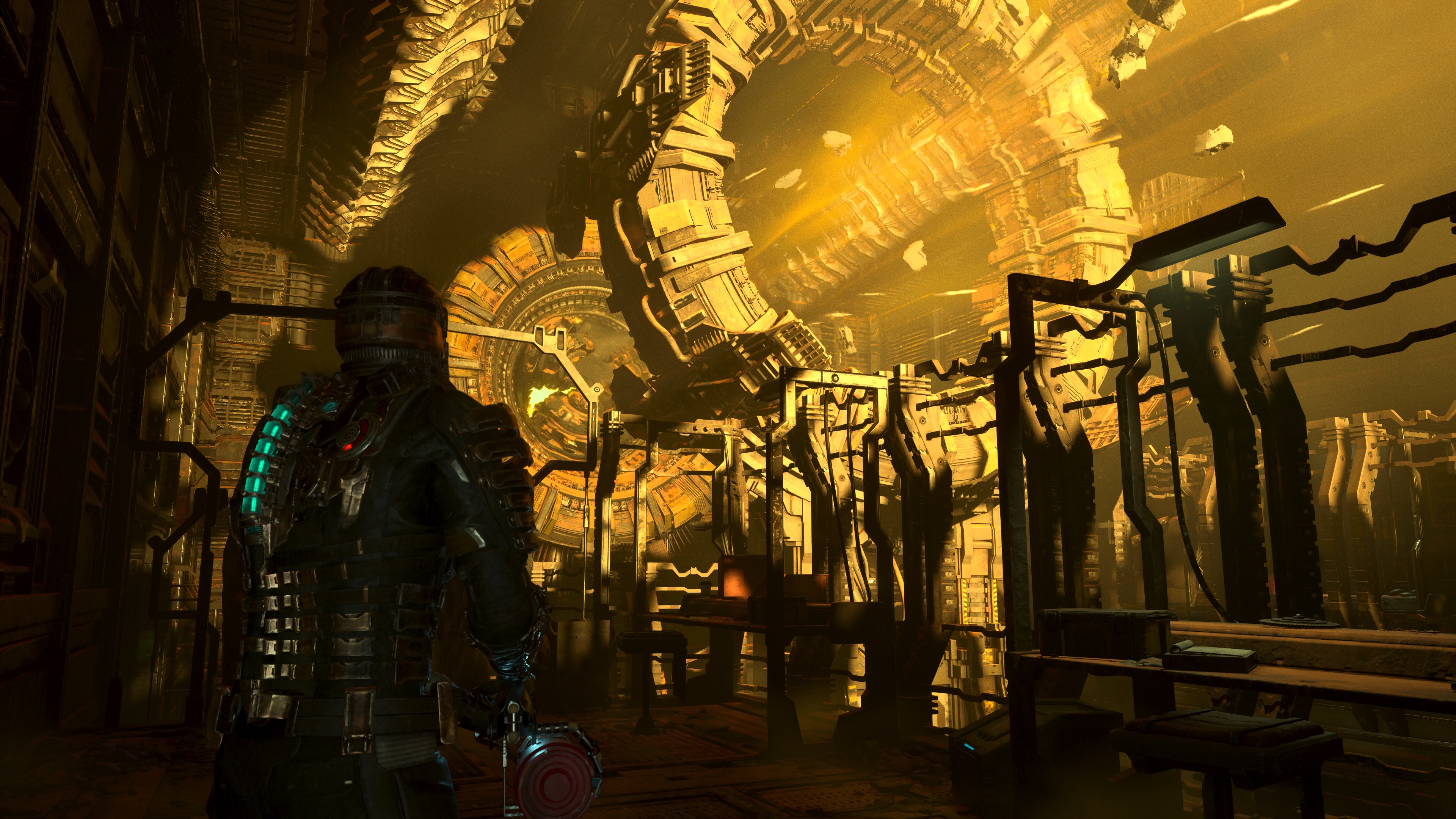
Rebuilt in the Frostbite engine, the Dead Space remake is gorgeous. The art direction keeps the spirit of the original game in mind all while bringing the visuals up to a standard of 2023. Gore drips from desiccated bodies and blood coats Isaac’s shiny armor after any close-up fights. Lights flicked and bounce across the cold metallic surfaces of the USG Ishimura.
Playing on Xbox Series X, there are two modes available: Quality and Performance. Quality mode runs the game at 4K with ray-tracing but caps the framerate at 30 FPS. Performance mode disables the ray-tracing effects and brings the resolution down significantly in exchange for a solid 60 FPS output. I mainly opted to play in Performance mode given the nature of the experience, but it was a harder choice than in many games considering the disparity between the two modes.
The new Peeling system ramps up the gore even further than anything seen in the series so far. Necromorphs aren’t just burned or cut apart. Instead, your weapons shred, disembowel, and flay them alive. Blasts from the Contact Beam remove limbs and all the skin on the creature, while the Pulse Rifle can shatter bone, leaving limbs dangling by a chunk of flesh. It’s gorgeous and gruesome all at once.
The audio design of the game is also excellent. It mostly builds on the already-fantastic work of the original game but takes advantage of 3D audio setups and improvements in headphones. In particular, you’ll notice Isaac’s heart rate climb faster and faster in tandem with the tense soundtrack, calming down when there’s a bit of a respite.
Dead Space remake: Accessibility and approachability
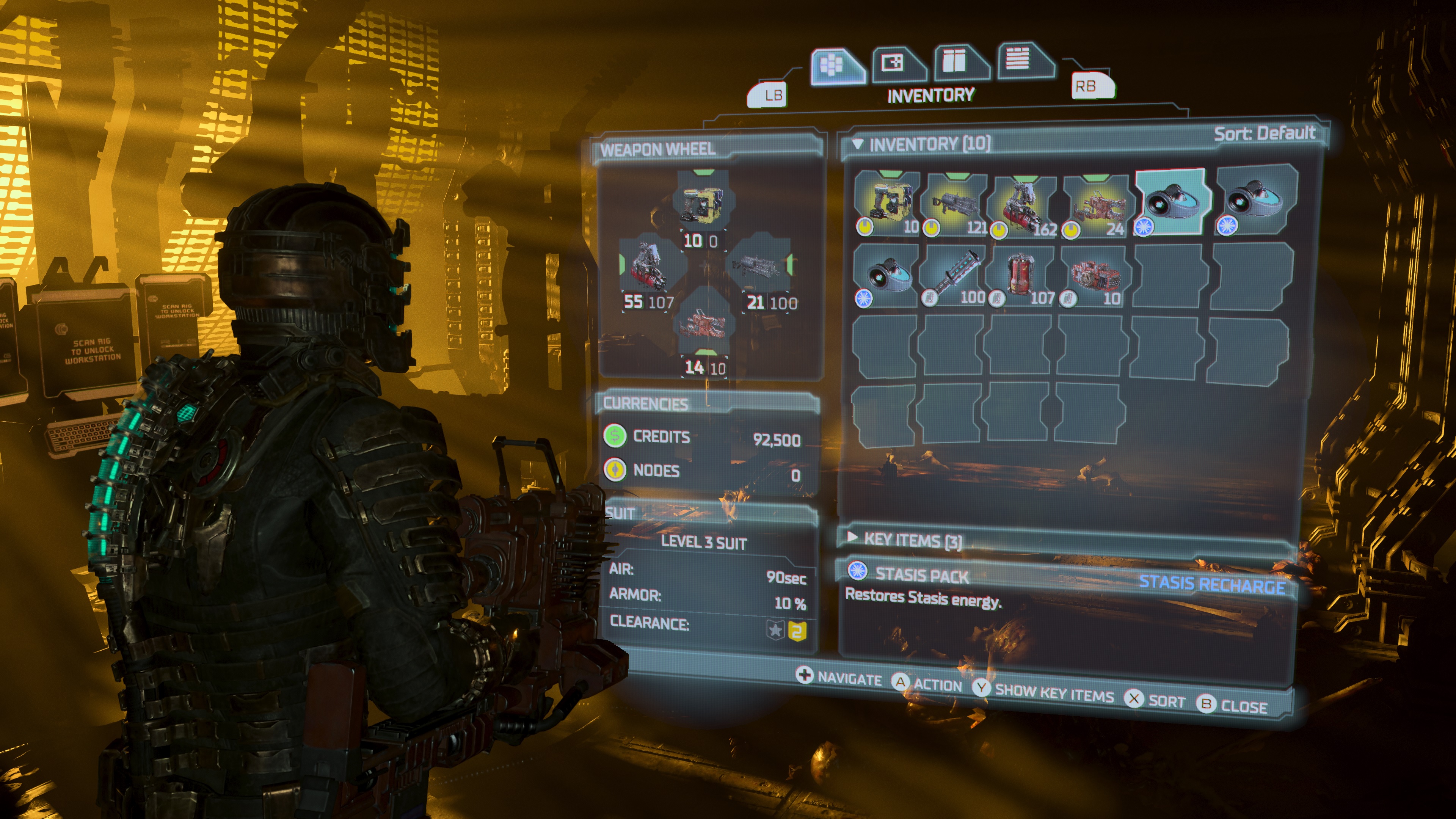
There’s a range of accessibility options implemented here, with some careful thought given to the nature of this being a horror game. In addition to regular options like subtitle size and colorblind modes, there are options for warnings when extremely sensitive material is about to be shown, with added care to note the nature of the game’s content around trauma and self-harm.
Players can also choose to have weapons automatically swap over to the next available option when empty, or make aiming a gun a toggle instead having to hold down a trigger or button, which should help in making it a bit easier for anyone that struggles with physical exhaustion in their hands.
Should you play the Dead Space remake?
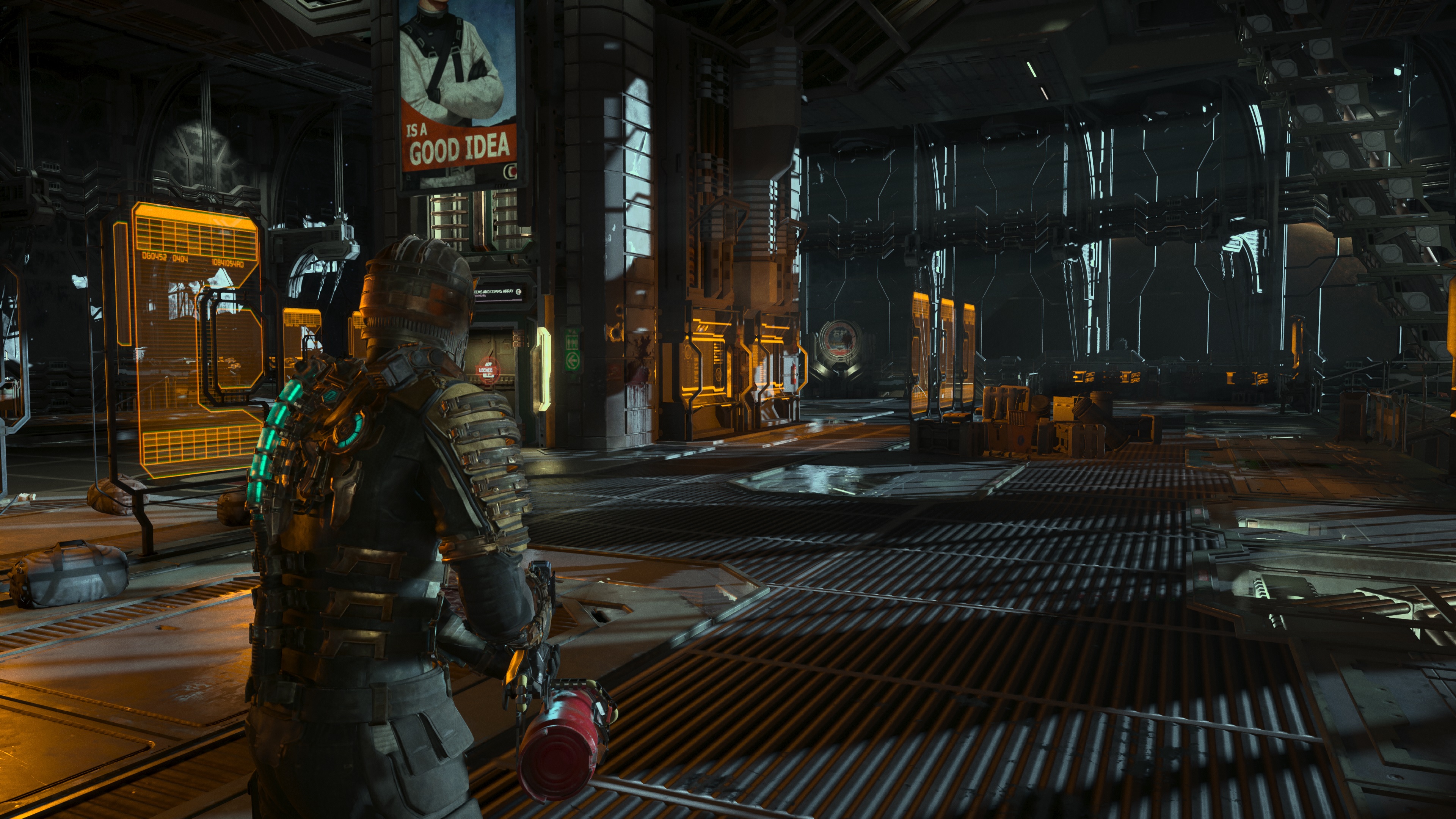
After going through the Dead Space remake, I’m impressed. Issues that came up when I previewed the game back in 2022 have been fixed, and the result is a polished experience that cements itself as one of the best Xbox games for horror fans.
Ultimately, this almost doesn’t feel like a remake but rather like if Dead Space was released for the first time in 2023. The main sticky point is the price. While I sympathize with anyone regarding the price of games these days, I think the quality on display here makes it worthwhile if you enjoy horror. The changes here are enough to make it a great experience no matter if you’ve played the original game or not.
Whether you’re like me and you played the original game a half-dozen times or you’re a newcomer curious about why this is such a big deal, this is definitely a trip worth taking.




